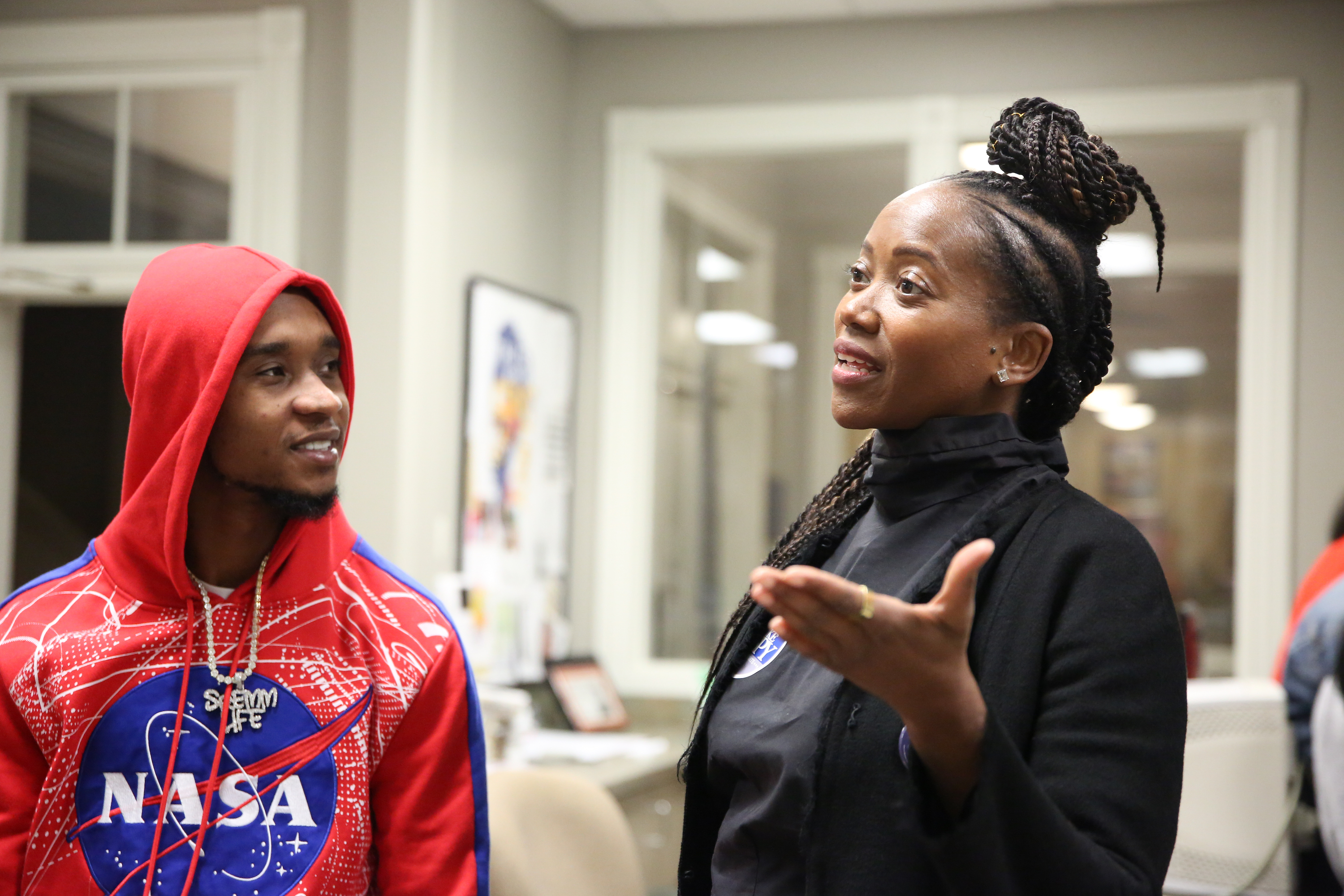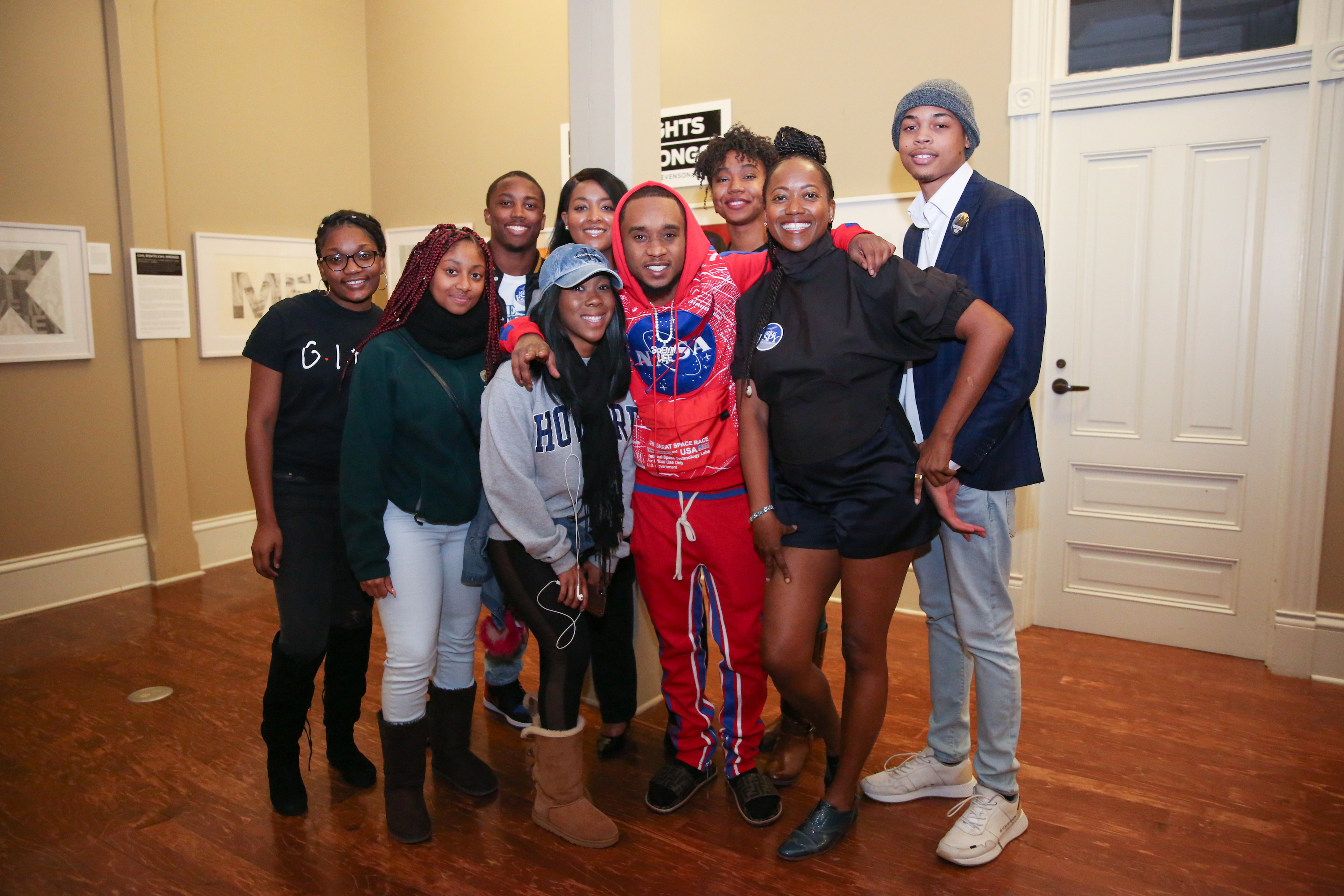
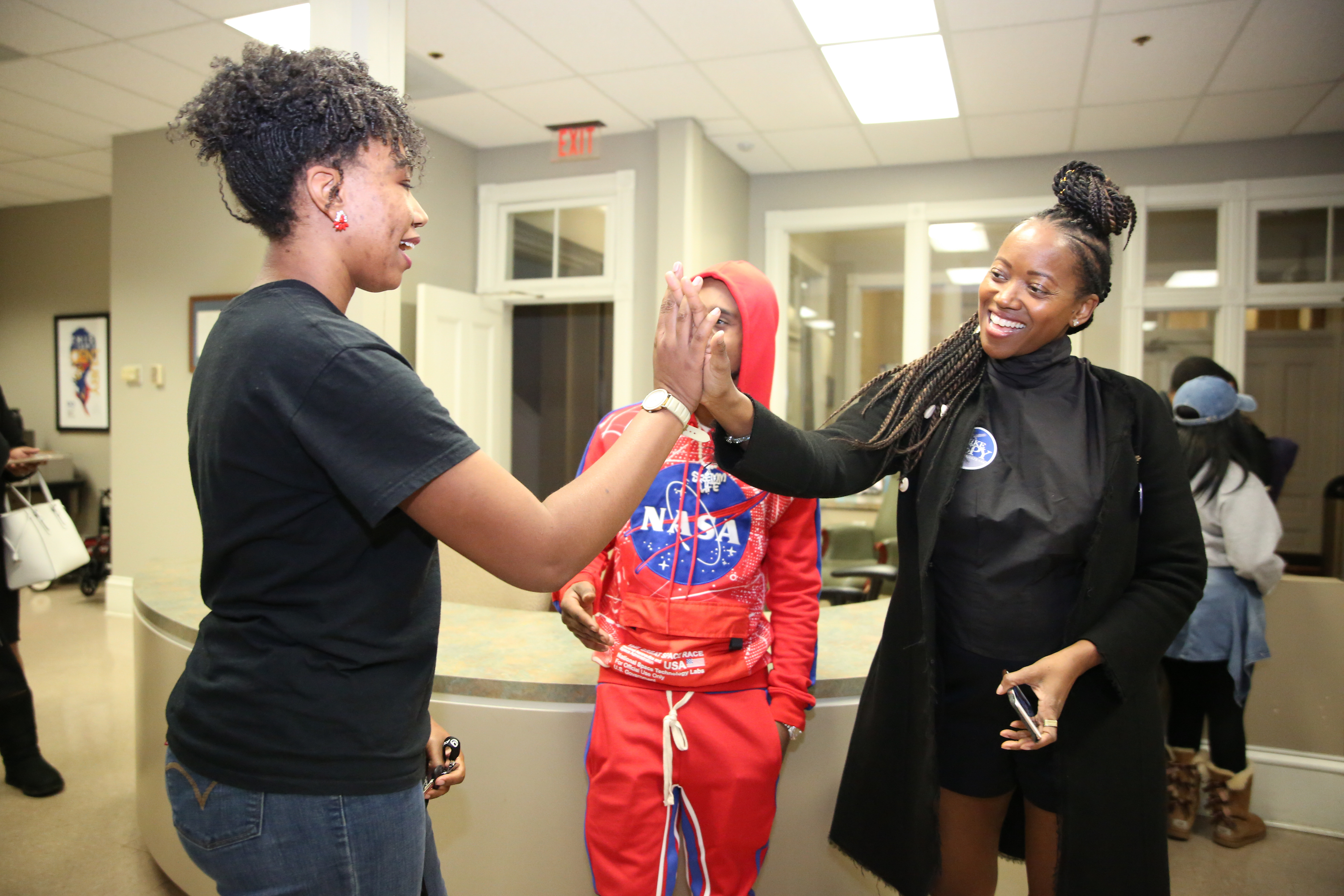
![]()
[hr]A campus group called GIRL has dedicated itself to enriching the community and recently addressed the importance of voting with help from actress/political activist Erika Alexander (“The Cosby Show” and “Living Single”) and from the Working Families Party.
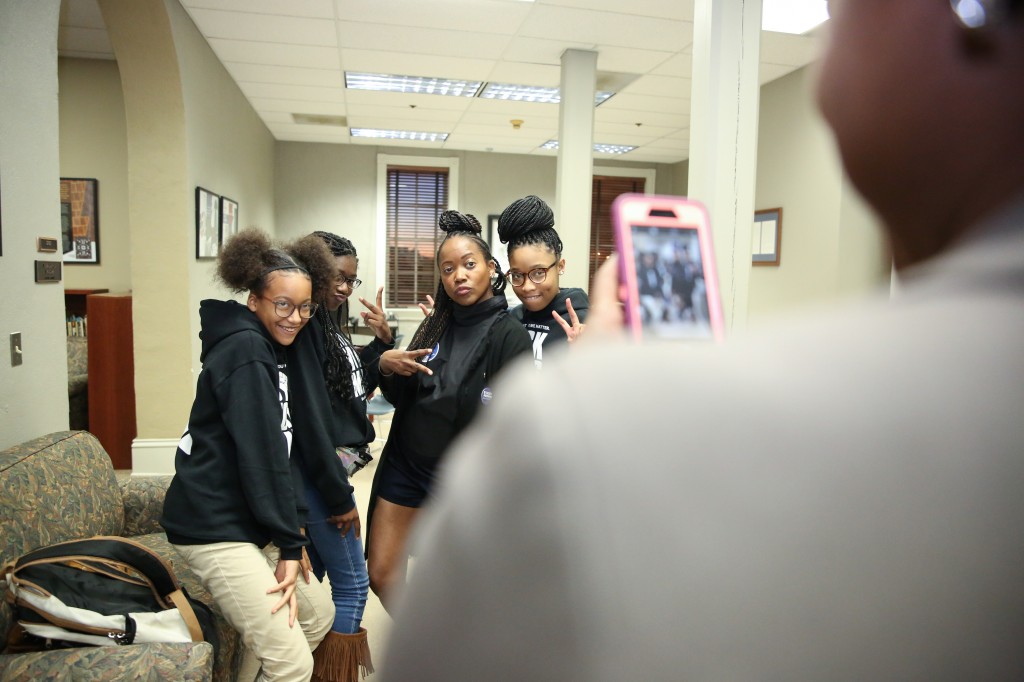
GIRL is an acronym for Gathering Information Related to Ladies. It aims to confront issues that young women face on college campuses and throughout the community and engage them in “democracy discussions,” said Keanne Williams, a senior childcare and family education major who is president of the GIRL organization.
During a recent event at the Margaret Walker Center, the Chicago native said she enlisted the support of actress Alexander because of the recent election and a desire to increase youth engagement and civic involvement.
Williams said, “Knowing that aside from being college students, we will eventually become active participants and citizens in the community. So, we need to do so knowledgeably.”
The campus organizer connected with Alexander while interning with Mississippi Votes, which was formed to mobilize young people “invested in the progression of Mississippi.” The advocacy group educates communities on voting rights through grassroots organizing.
[dropcap]R[/dropcap]ECENTLY, Williams said, “With the help of Mississippi Votes, the organization along with the Campus Activities Board hosted a hotspot to get people amped up about voting.” Their activity coincided with a march-to-the-poll event Nov. 27 by the Student Government Association.
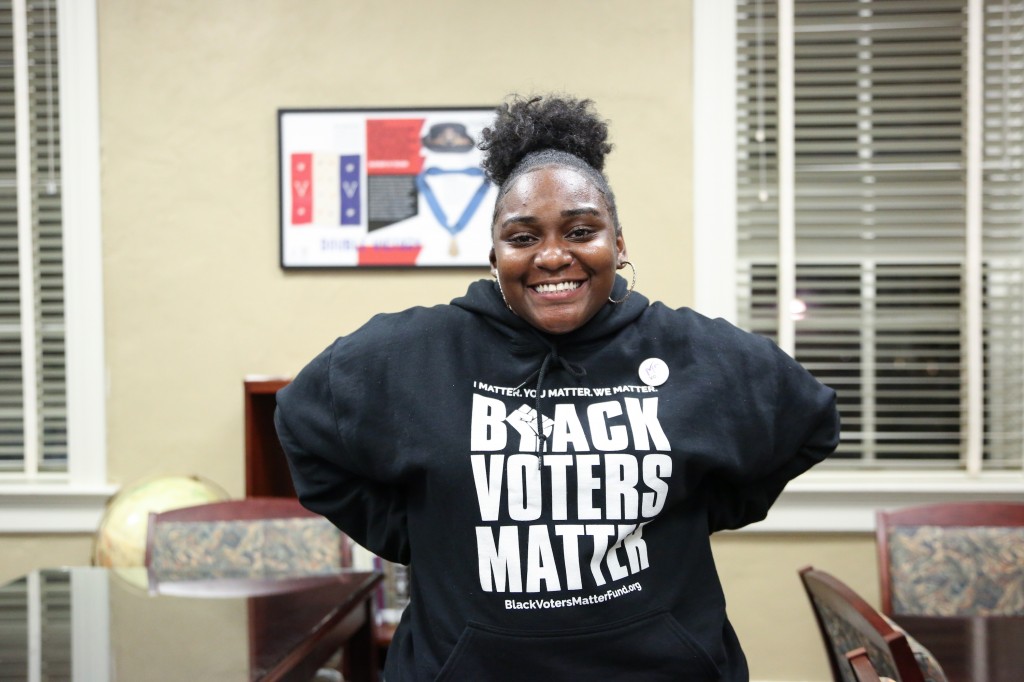
During her visit, Alexander explained her community work outside of acting and shared why Mississippi is important.
“I advocate for people who are doing important things – not just people but candidates, too.” She admits that she supported Mike Espy in his Senate race against Cindy Hyde-Smith. She had hoped that Espy would have become the first senator in Mississippi since Reconstruction because it would be a reminder that “our people built the South.”
Furthermore, she believed that had Espy won it could have become “a bellwether to show we always had a right to the South. … There are a lot of black people coming back to the South. … If it’s red, it’s red with our blood, our sacrifice. … Mississippi will return back to the people who built it. … Thirteen percent of this nation have been the cultural makers of the world. … Black men and black women have always had to deal with a very specific set of hard circumstances.”
As she talked about voting, Alexander reflected on her humble beginnings that led to her advocacy. She was born in the mountains of Arizona, and both her parents were orphans. She was one of six children and spent the first 11 years of her life in a hotel off Route 66. Her father was a pastor, and the family depended on the kindness of strangers.
“We often had to look to others and government programs and community programs,” she said. “After a while you realize, as a community, there is a village involved.”
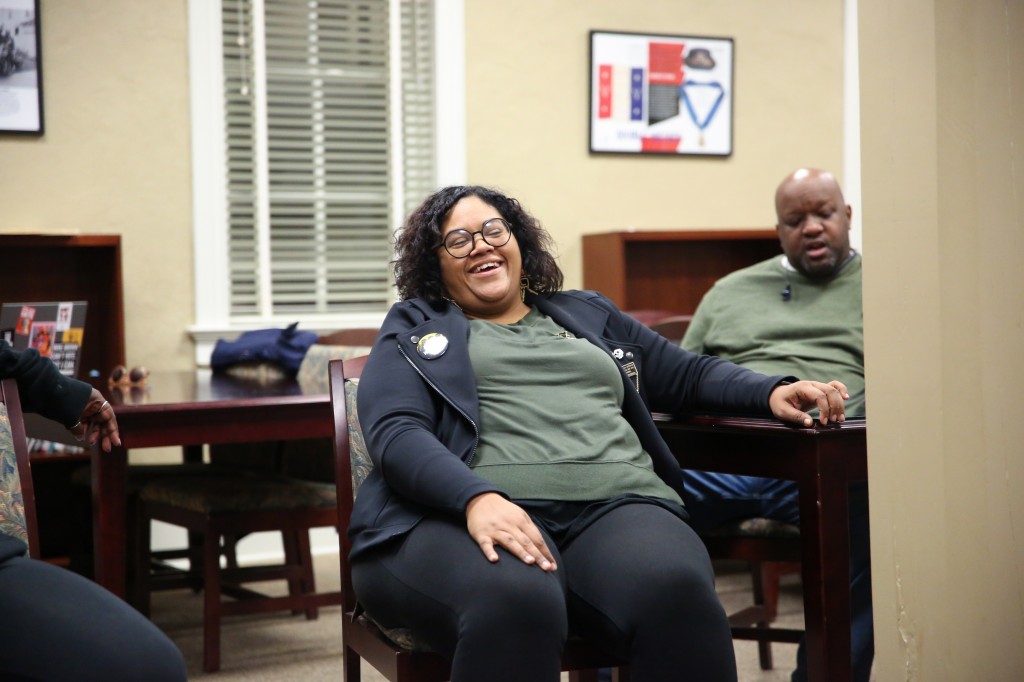
Although she didn’t attend college, “I tell people that I understand the problems of education. I’m self-taught after high school. I just really love these institutions because young black people are truly what can heal the world.”
[dropcap]U[/dropcap]LTIMATELY, Alexander discovered fame, and her work didn’t just stop there. She traveled with Hillary Clinton in 2007 and became “her most-traveled surrogate,” journeying as far as Africa to support Clinton’s presidential bids. “I learned so much from Clinton and other black women who surrounded her such as (U.S. Reps.) Maxine Waters and Sheila Jackson Lee. These were strong women. I was glad to be among them despite the turn of events in 2008 and 2016.”
Aside from Alexander, the Working Families Party also made an appearance at the Walker Center to further inspire voting.
Aimee Castenell, based in Atlanta and the Southeast Region communications director for Working Families, came to town to further buttress the Espy campaign, and she addressed other community issues, too.
She said Working Families talked to many individuals on the phones and in the streets leading up to the election. Even though they were exhausted, she said people recognized the importance of this election.
She called remarks by Cindy Hyde-Smith “inflammatory” and said it drew “a bright line about what you want the future of this state to be and how you want your representative to talk about the community.”
Castenell said she realized an Espy win was an uphill battle but didn’t believe a Hyde-Smith win would negatively color her impression of Mississippi.
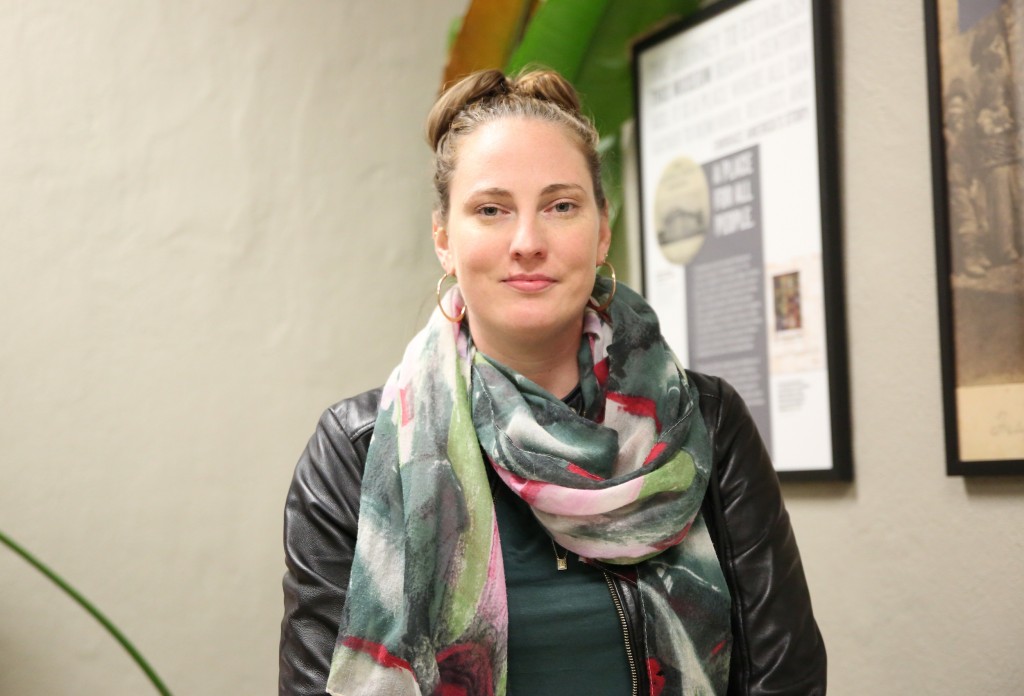
“I literally just went through the same thing in Georgia with (gubernatorial hopeful) Stacey Abrams. When a candidate that you really believe in loses in any situation like this you have two options. You can sit there and say ‘Oh no, we lost’ and think everything’s over, or you can think about the things you’ve actually gained. For example, in Mississippi a lot of these students were activated and involved in the campaign and became interested in politics and in the future of this state. That is not a loss; it’s a win. We’re moving people into progressive action,” Castenell said.
[dropcap]T[/dropcap]HE Working Families advocate then responded to a JSU student from Chicago who had suggested that a shooting victim in her Midwest city likely contributed to his own death by repeatedly disobeying police orders to surrender his weapon. The student acknowledged that while he didn’t deserve to die, police may have been forced to use deadly action for their own safety. The student also insisted that some people with the Black Lives Matter movement appeared to try to capitalize on the tragedy only because it was a high-profile shooting. In addition, she expressed dismay over the failure of Black Lives Matter to assemble and protest tragic deaths in the community that don’t involve police shootings.
Castenell acknowledged the student’s “legitimate concerns.” However, she said, “Regardless of what this man did or didn’t do or how many guns he did or didn’t reach for, police should be trained to de-escalate situations like that. There are levels that are missed when you focus on what that man did. … We don’t have a justice system where you just shoot onsite. That’s not how it’s supposed to work.”
Overall, despite the results of the recent Mississippi Senate election in which Hyde-Smith won, the Working Families Party and actress Alexander don’t want people to become apathetic toward elections in the future.
Alexander’s message remains: “Vote. Vote. Vote. It’s our ancestral duty. It’s your future. … We need to be schooled and educated about this ridiculously powerful thing that we call voting. (Georgia Congressman) John Lewis said it’s the most powerful form of protest. … I’m here to be of service. I go where I’m told, where I’m asked and where I’m invited.”
As for her acting career, Alexander urges people to watch “Black Lightning,” a dramatic series on The CW that added her in its second season. She portrays Perenna, a therapist with telepathic abilities who’s trying to get a handle on her manifesting powers. She also has launched Color Farm Media with former Google executive Ben Arnon.
